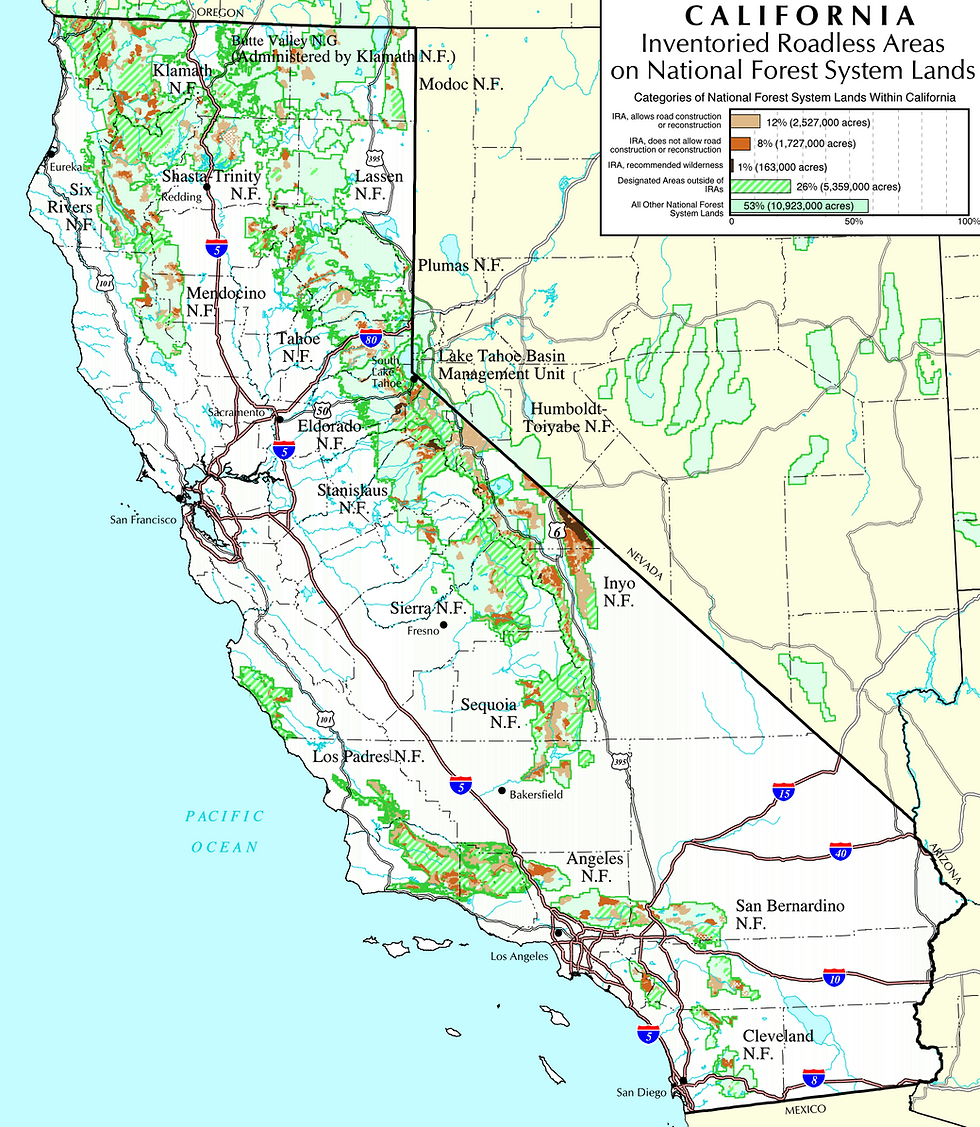Northern Spotted Owl Abandoned to Whims of CAL FIRE
- Feb 7, 2014
- 2 min read
The California Department of Fish and Wildlife (CDFW) has chosen to defer to the California Department of Forestry and Fire Protection (CAL FIRE) timber harvest plan review and approval process in hopes of preventing “take” of Northern Spotted Owls as defined under the California Endangered Species Act (CESA) during the candidacy period for the species. EPIC considers this to be an incorrect decision, a violation of public trust, and an inappropriate abandonment of duties considering the new lumber tax that has been imposed upon California consumers to specifically fund CDFW review of timber harvest plans for private lands logging in the state.
In a letter dated January 16th, 2014, to CAL FIRE, the CDFW, signed by Department Director Charleton H. Bonham, indicates that it intends to rely on the existing regulatory framework (i.e. the California Forest Practice Rules (CFPRs)) for review and approval of timber harvest plans to ensure that “take” of NSO is avoided on a plan-by-plan basis. The CDFW letter states that the agency believes that the current regulatory framework as administered by CAL FIRE is adequate to prevent “take” of NSO, and that no additional protective measures for the species will be required during the one-year candidacy period under CESA.
However, the best available science and regulatory guidance provided by the U.S. Fish and Wildlife Service clearly points to a failure of the existing CFPRs to prevent “take” of NSO. Indeed, the inadequacy of existing regulatory mechanisms on private forestlands in Northern California is one of a myriad of reasons why EPIC filed the petition to list the NSO as either “threatened” or “endangered” under CESA. The 2011 federal NSO Revised Recovery Plan for the NSO continues to identify inadequate regulatory mechanisms as a major factor driving the recent and precipitous declines of the NSO; this is true in California as well as other pacific states that are host to NSO.
This decision by CDFW ignores that even CAL FIRE itself has acknowledged that existing CFPRs are largely out-of-date, do not reflect the best available science or guidance, and that the agency does not in fact even rely on the existing CFPRs due to their lack of effectiveness. The CDFW’s initial evaluation of our petition to list NSO under CESA indicated that the agency believes that the influences of management-related activities are “varied and complex,” and that further study and consideration of these effects is necessary.
EPIC has responded to the CDFW’s letter by writing to the Department in order to remind the agency of its responsibilities under the California Endangered Species Act, the California Fish and Game Code, and the California Environmental Quality Act. These responsibilities should not and cannot simply be deferred to another agency, particularly an agency such as CAL FIRE that possesses no independent biological expertise, and that has no authority to make determinations as to the potential for “take” of species listed by responsible wildlife agencies.
The CDFW is failing to discharge its public trust, legal, and regulatory responsibilities by summarily relying on CAL FIRE and antiquated CFPRs to ensure that the NSO is protected, enhanced, and restored in Northern California. It is also important to recognize that with the passage of AB 1492 by the California legislature in 2012, a lumber tax was imposed in the State of California in order to insure that CDFW has the necessary resources to fulfill it’s obligations to carry out tasks related to timber harvest plan review. This decision by CDFW to pass the buck on review of logging plans and to not provide analysis of how the NSO as a CESA candidate species may be affected by timber harvest is particularly egregious in light of the agencies new revenue stream based in taxing wood product consumers. EPIC will continue to challenge the CDFW on this basis, and will continue our efforts to seek CESA protections for the NSO.





Comments